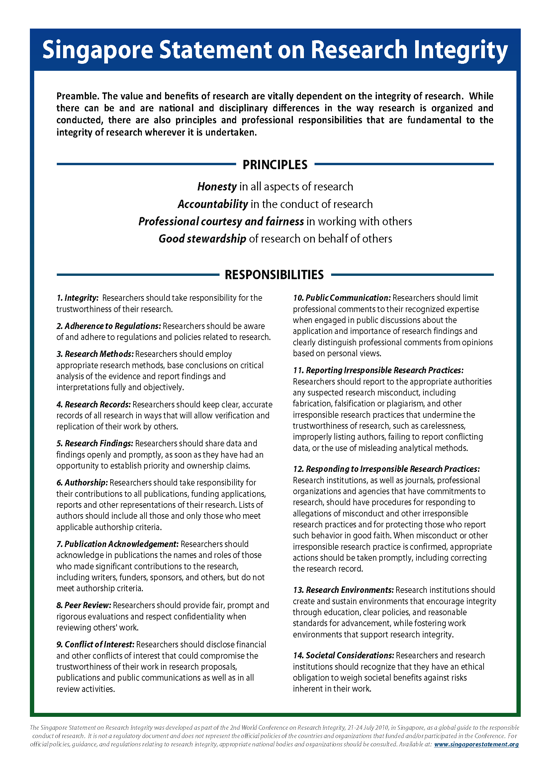There is nothing so stupid as the educated man
if you get him off the thing he was educated in.
Will Rogers
Fraud in science is an ugly subject, but an important one. Luckily, cases of misconduct become public, e.g., the Stapel’s case (see posting here), and retractions are tracked in own blogs. Science needs to deal with cases of fraud — publicly. What we do not want is a system where cases of misconduct are reported only to internal organizations. Other organizations have tried this, with (in my opinion) devastating results.
But it’s easy to focus on the negative, what are guiding principles a scientist can adhere to?
Many institutions have rules of best practice, although it depends on the institution whether these rules are actually worth the paper they are printed on. Reading a bit about the subject on the website of the Office of Research Integrity I came upon the Singapore Statement on Research Integrity:

There are general guidelines and in practice, things are more complicated. But I especially like point number 10 (see also the quote at the beginning of this posting):
10. Public Communication: Researchers should limit professional comments to their recognized expertise when engaged in public discussions about the application and importance of research findings and clearly distinguish professional comments from opinions based on personal views.
Whenever I see a psychologist (or another ‘expert’) on TV talking about subjects that are just too complicated to be answered in 10 easy words, or worse, where there are no studies available and we are all operating in a ‘data-free zone’ (as Dr. Anna Kaminski of Planned Parenthood called it in Dan Savage’s podcast “Savage Love” (iTunes Link), love the term), I would love to remind them of this point. After all, scientists have a responsibility. We have studied the stuff we are dealing with and the public (implicitly or explicitly) expects answers that are more than just opinions.
Scientists should be clear when something is based on studies, or when it is an opinion, and when it is something in between.
Anyway, an interesting guideline.